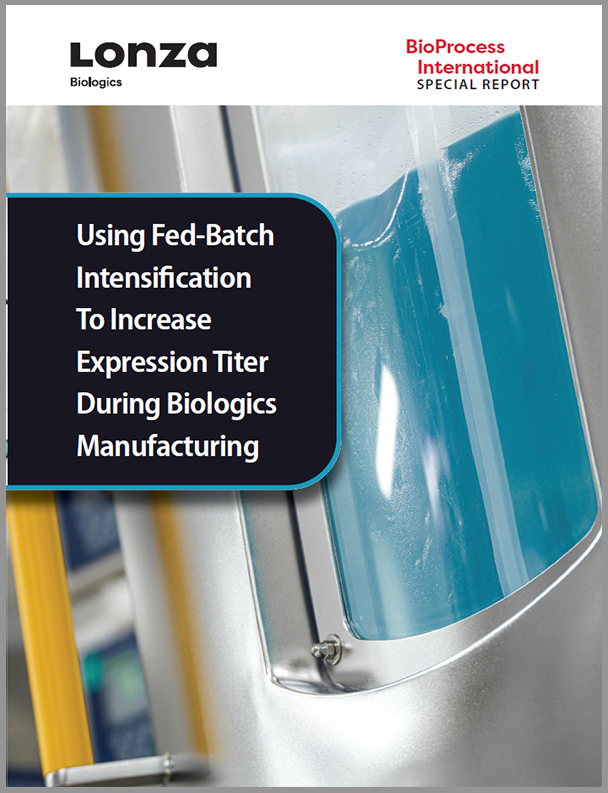- Sponsored Content
- Expression Platforms
Using Fed-Batch Intensification To Increase Expression Titer During Biologics ManufacturingUsing Fed-Batch Intensification To Increase Expression Titer During Biologics Manufacturing
November 30, 2023
Sponsored by Lonza Biologics

Improving manufacturing productivity is a major goal in today’s biopharmaceutical industry, especially as new and increasingly complex molecules are fundamentally changing technological and operational approaches to drug development. Process intensification can accelerate the pace of innovation by introducing advanced process-development techniques and high-productivity manufacturing platforms. N – 1 perfusion represents a promising strategy for increasing the density of cells that are used to inoculate fed-batch cultures in production-scale (N-stage) bioreactors ultimately increasing product accumulation within a production bioreactor.
In this special report, Ruth Rowland-Jones describes Lonza’s achievement to establish a platform process for high inoculum density (HID) fed-batch culture of Chinese hamster ovary (CHO) cells. Such efforts included implementation of advanced process analytical technologies (PATs) including capacitance probes and Raman spectroscopy for automated monitoring and adjustment of key culture conditions and feed strategies at both the N – 1 and N stages. Compared with Lonza’s traditional fed-batch process, the intensified process has improved monoclonal antibody (MAb) titers by an average of 79% without compromising product quality. As a result, the new process has helped to reduce cost of goods (CoG) significantly at commercial scales. HID fed-batch culture also has increased yields of three- and four-chain bispecific antibodies, enabling intensified production of increasingly complex biotherapeutic formats.
Download the special report now to learn about advantages of intensified seed-train processes, critical parameters for perfusion cell culture at the N – 1 stage, and the role of PATs in monitoring and controlling advanced production processes. Read also about the flexible and comprehensive capabilities that Lonza has established for multiple production scales and product types across its global manufacturing network.
You May Also Like






